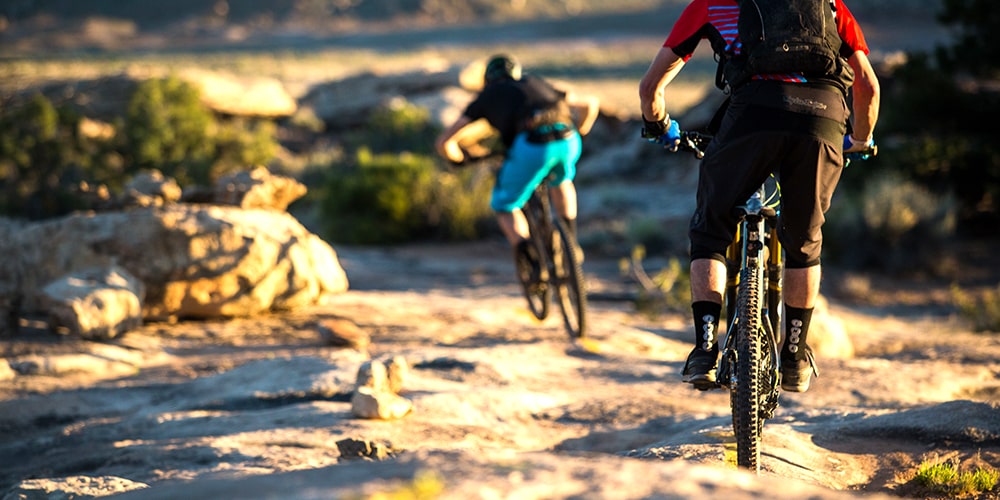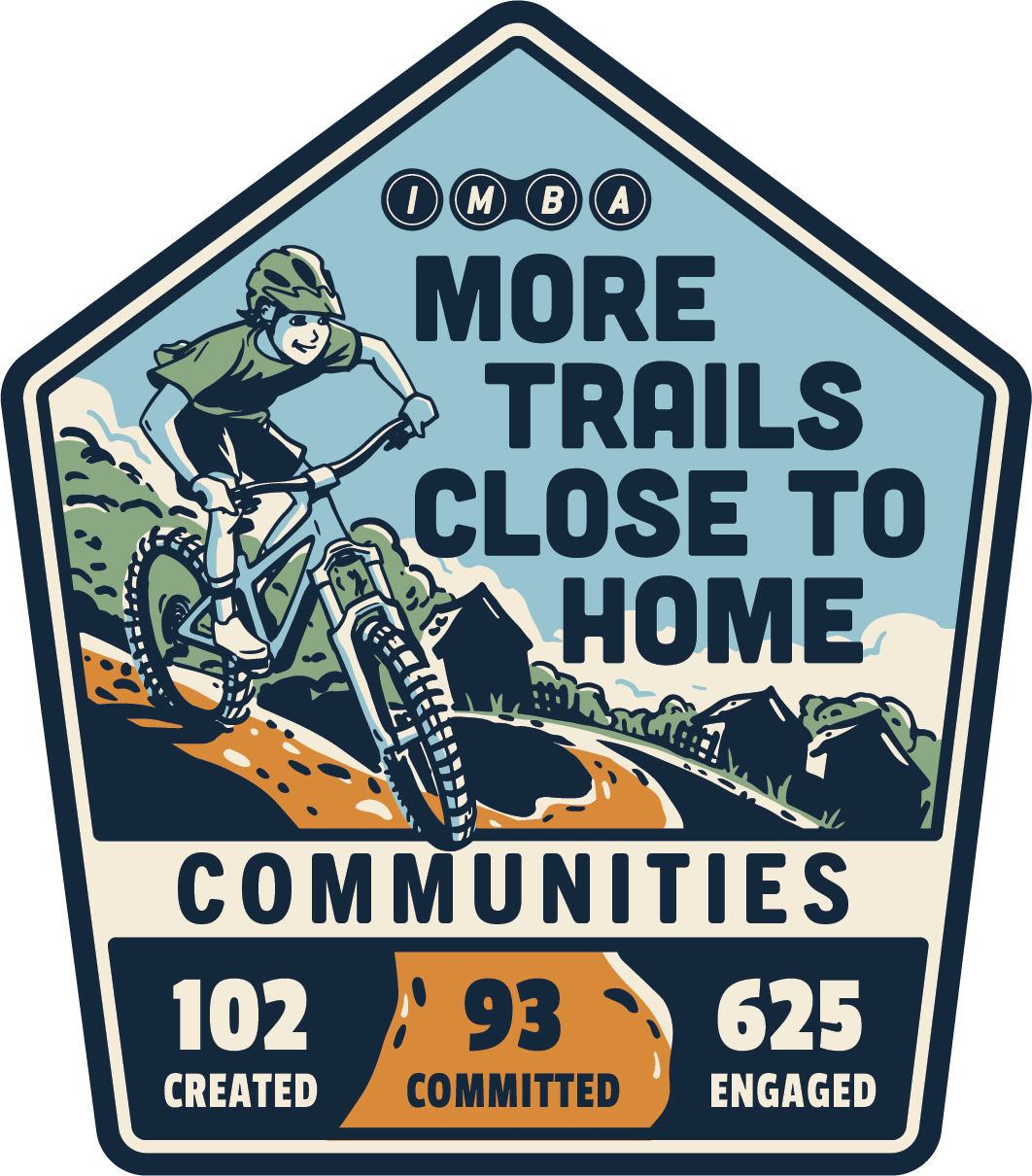2018 was a great year
Katherine worked for IMBA in various marketing and communications roles from 2010-2018.
Accounts are tied to financial gifts. Would you like to donate to IMBA's work or join your local mountain bike organization? Click here to learn more.

As mountain bike organizations multiply and strengthen nationwide, what is the next step in their growth? How can IMBA assist to ensure better outcomes for all mountain bikers?
By now, many mountain bike advocates have identified large-scale funding and master planning opportunities at the state level that require a strong, organized voice to take advantage of. Imagine not just being able to have one state park or state forest embrace mountain biking, but to have all of them embrace it at the agency level. Imagine being able to access pots of money ten times larger than what an individual, local group can go after. Imagine being able to spread stoke and understanding about mountain biking at the state legislative level.
Imagine being able to stand shoulder to shoulder with much more established trail-user organizations that have historically been able to ignore or disenfranchise mountain bikers and their interests.
All of that is why IMBA has a vision to support the creation of state-based regional coalitions. Regional coalitions are groups of local mountain bike organizations that agree to work together toward common goals that affect them at the state level. Our role is simply to facilitate that.
“City- and county-based mountain bike organizations may be doing great work at the state level, but they’re doing it on their own and not through the lens of how it may affect other mountain bike groups and communities in the state,” said Anthony Duncan, IMBA Local Program Manager. A group from a major metro area working alone might not be able to represent the interests of mountain bikers in rural areas, for example.
“The idea came from the fact that we, as a national organization, were never able to adequately address statewide issues,” said Anthony. “That was somewhat the task of the IMBA region directors but, for example, I had nine states in my region when in that role. It wasn’t totally feasible.”
We don’t tell local groups what to focus on, how to organize or what to spend pooled resources on. If they hire a state-level staffer, we don’t control them. We don’t even require every mountain bike group in the coalition to be an IMBA affiliate.
In facilitating the process to create regional coalitions, IMBA helps the local mountain bike groups communicate with each other—many of them have never talked or met, before. We provide coaching, facilitation and professional guidance to help them establish short-term goals to set them on the path toward establishing big, statewide visions. From there, we can help them with resources and education.
For example, do the groups want to hire a state-level staff person? We can bring someone in to coach them through a fundraising strategy to achieve that. Our government affairs team doesn’t have the capacity to help with every local issue (individual trails in individual state parks, for instance) but our staff can assist with state-level issues (such as master planning that affects all state parks) that multiple grassroots advocates have agreed are critical and in need of expert consultation.
Our ultimate goal—beyond greater state-level successes for mountain bikers—is to create an advisory coalition made up of representatives from each coalition to advise IMBA on policy positions, programming changes, and more. Instead of us asking 200 organizations or 200,000 mountain bikers, we can have much more personal conversations with 20-50 statewide leaders who represent their coalition of grassroots mountain bike organizations.
So far, six regional coalitions have been established with IMBA’s assistance: New York, Ohio, Virginia, Michigan, New Mexico and Colorado. Others have formed on their own in Vermont and Oregon, which we applaud.
Formal organization at a state level provides new opportunities for large-scale master planning that supports mountain bike trails, and access to significant funding streams like the federal Recreational Trails Program. State-level groups are also better able to raise the profile and influence of mountain biker interests, and can partner with state-level transportation cycling groups.
Want to form a regional coalition?
Contact Anthony, the IMBA Local Program Manager, to begin discussions. It’s that simple. We’ll walk you through the rest.
Katherine worked for IMBA in various marketing and communications roles from 2010-2018.
Katherine worked for IMBA in various marketing and communications roles from 2010-2018.
View complete profileResponsible riding is a simple and powerful tool that all mountain bikers can use to create a positive trail experience for all. We can make trails places of respect, safety, and enjoyment.
Spread good trail vibes


